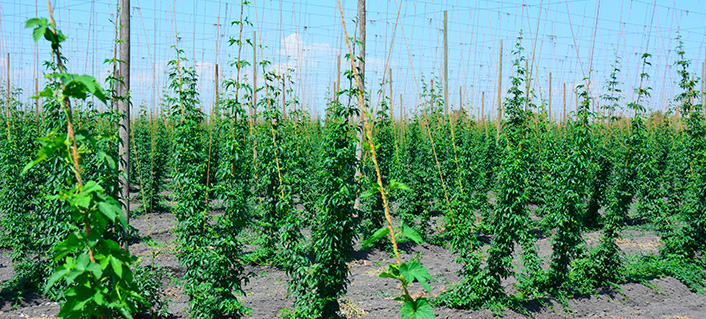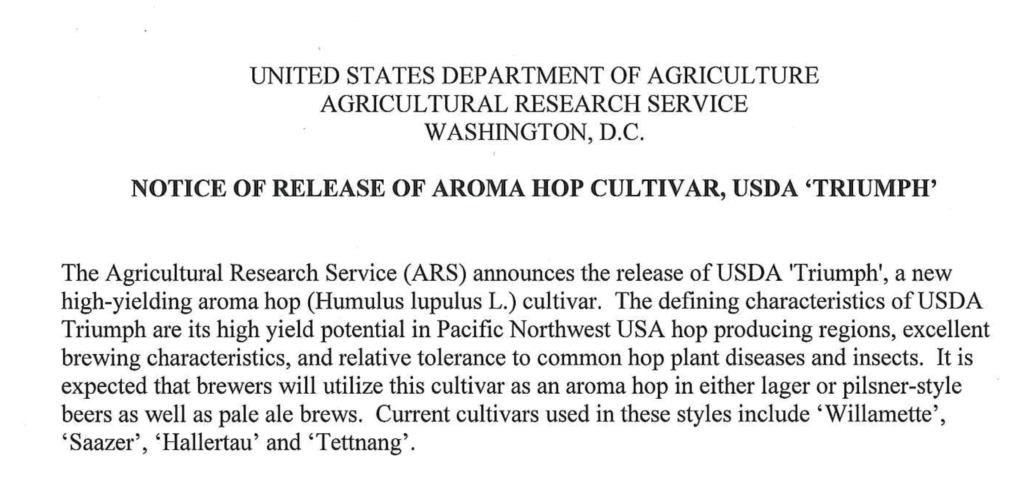Public Hop Varieties: Triumph Is For Winners

Since BSG first shared the news with our customers in 2019, Triumph hops have been seen in more and more beers around the US and the world. But three years on, this public variety is still flying a bit under the radar. In this post, we’ll make sure you’re not missing out on the winning qualities of Triumph.
Twenty Years to Triumph
As anyone in the hop industry can tell you, developing a new variety is a long process – the journey from breeding to release takes about two decades.
Triumph was selected in 2000 and first grown in 2001 at the USDA-ARS hop research facility in Corvallis, OR. Following a vision for a high-alpha aroma variety, the genetic makeup of the hop that would eventually become Triumph included Nugget, Brewers Gold, Bullion, East Kent Goldings, and Hallertau Mittelfrüh.
After several seasons growing in trial plots, Triumph beat out its sisters in sensory panels of pilot-scale single-hop lagers from the Fermentation Science Department at Oregon State University. Over the next few years it moved on to larger-scale trial plots throughout the Pacific Northwest. Growers noted that the new cultivar produced “compact cones that mature early” and exhibited high yields. The USDA officially introduced Triumph to the brewing world in April 2019, almost twenty years from its initial selection.

As a product of the USDA’s public hop breeding program, Triumph helps ensure that all growers have access to new and profitable genetics, and that brewers have access to high-quality hops at a good price.
Triumph in the Brewhouse
With notably high levels of myrcene, humulene, linalool, citronellol, and limonene, Triumph brings a big helping of citrus (lime, orange), stone fruit (peach), pine, and spice. Many folks report a juicy fruit or bubblegum character in certain lots.
As with any hop that has “citrus” and “pine” listed in its sensory profile, of course Triumph is going to get put in IPAs. It’s distinctive and complex enough to feature as a solo hop, and – perhaps not surprising considering the noble hops in its family tree – does well as a finishing hop for lagers.
Beers where you might’ve tasted Triumph include:
- Hill Farmstead Triumph IPA
- Cigar City Triumph Pale Ale
- Stoup Brewing Triumph Fresh Hop IPA
- Able Ebenezer Triumph Lager
- Castle Island Triumph Pils
- Commonwealth Brewing Co. Triumph IPA
- Great Raft Hobbies Include: Triumph Single-hop IPA
Go Deeper